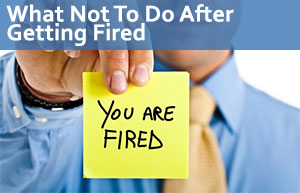Labor Law FAQ
Can I sue my employer for wrongful termination in California?
Yes, if you were fired for an illegal reason, such as discrimination, retaliation, or whistleblowing, you may have grounds for a wrongful termination lawsuit. California is an at-will employment state, but that does not allow employers to fire someone for unlawful reasons. Gather all relevant documentation and consult with an employment attorney to evaluate your case. The California Labor Law Employment Attorney’s Group can help determine whether your termination violated state or federal laws and what compensation you may be entitled to.
What qualifies as workplace retaliation in California?
Workplace retaliation occurs when your employer punishes you for engaging in a legally protected activity, such as reporting harassment, wage violations, or unsafe working conditions. Retaliation can include termination, demotion, pay cuts, or harassment. California law protects employees from such retaliation. If you believe you are being targeted for speaking up or asserting your rights, you may be able to sue. The California Labor Law Employment Attorney’s Group can assess your case and help you pursue legal action to protect your rights and recover damages.
How do I know if I have been misclassified as an independent contractor?
You may be misclassified if you perform work under your employer’s control or direction, use their equipment, or work scheduled hours. California’s ABC Test presumes workers are employees unless the employer proves otherwise. Misclassification can result in loss of wages, benefits, and protections. If you think you were wrongly labeled an independent contractor, you may be eligible to sue for back pay and other damages. The California Labor Law Employment Attorney’s Group can review your work relationship and help determine if you have a valid claim.
Can I sue for unpaid wages or overtime in California?
Yes. California labor laws require employers to pay employees all earned wages, including overtime. If your employer fails to pay minimum wage, regular pay, or overtime, you can file a wage claim or lawsuit. You may also recover penalties and interest. Document all hours worked and payments received. The California Labor Law Employment Attorney’s Group can help you gather evidence and file a legal claim to recover your unpaid wages and pursue additional compensation under the law.
What should I do if I experience workplace discrimination?
If you face discrimination based on race, gender, age, disability, religion, or other protected categories, you should document each incident and report it to HR. If the employer fails to act or retaliates, you may have legal grounds to sue. California’s Fair Employment and Housing Act (FEHA) protects employees from discrimination. The California Labor Law Employment Attorney’s Group can assist you in filing a complaint with the appropriate agency and pursuing legal action to hold your employer accountable.
Can I sue for sexual harassment at work in California?
Yes. Sexual harassment includes unwelcome sexual advances, comments, or conduct that creates a hostile work environment or affects employment decisions. California law protects employees from such conduct, whether it comes from supervisors, coworkers, or clients. If internal complaints fail to resolve the issue, you can file a lawsuit. The California Labor Law Employment Attorney’s Group can help you gather evidence, report the harassment, and take legal steps to seek justice and compensation.
How long do I have to file a lawsuit against my employer in California?
The time limit to sue depends on the claim. For example, discrimination and harassment claims usually must be filed with the Department of Fair Employment and Housing (DFEH) within three years of the last incident. Wage claims have a statute of limitations of up to four years. Acting quickly is crucial. The California Labor Law Employment Attorney’s Group can review your case and ensure you meet all deadlines, preserving your right to compensation and justice.
What is considered a hostile work environment under California law?
A hostile work environment occurs when harassment or abusive behavior is so severe or pervasive that it creates an intimidating, offensive, or abusive workplace. This can include constant derogatory comments, bullying, or discrimination. If your employer allows or ignores such conduct, you may have a legal claim. The California Labor Law Employment Attorney’s Group can help determine whether your work conditions meet the legal standard and assist you in holding your employer accountable.
Can I sue for emotional distress caused by my employer?
In some cases, yes. If your employer’s conduct was extreme and outrageous and caused you severe emotional distress, you may sue for intentional or negligent infliction of emotional distress. This often applies in cases of harassment, discrimination, or retaliation. Documentation and medical records can help support your claim. The California Labor Law Employment Attorney’s Group can help evaluate the emotional harm caused and build a strong case to seek compensation.
What are whistleblower protections in California?
California law protects employees who report illegal activities, safety violations, or fraud by their employers. If you face retaliation for speaking out—such as termination, demotion, or harassment—you can sue under whistleblower protection laws. These laws encourage reporting wrongdoing without fear of losing your job. The California Labor Law Employment Attorney’s Group can help you understand your rights and file a retaliation claim if your employer took adverse action against you.
What if my employer won’t let me take meal or rest breaks?
California labor laws require rest breaks every four hours and a meal break if you work more than five hours. If your employer denies these or pressures you to work through them, you may sue for penalties and unpaid wages. Track your hours and any missed breaks. The California Labor Law Employment Attorney’s Group can help you pursue compensation and hold your employer accountable for labor code violations.
Can I sue if I was forced to resign due to a toxic workplace?
Yes, this is called constructive discharge. If conditions were so intolerable that a reasonable person would feel forced to quit, you may still sue for wrongful termination. This typically involves ongoing harassment, retaliation, or discrimination. The California Labor Law Employment Attorney’s Group can help prove that your resignation was not truly voluntary and that your employer is legally responsible for your forced departure.
What evidence do I need to sue my employer?
Strong evidence includes emails, texts, HR complaints, witness statements, pay records, schedules, and performance reviews. Keep detailed notes of incidents with dates and descriptions. This documentation helps prove your claims of illegal conduct. The California Labor Law Employment Attorney’s Group can review your evidence, request more through legal discovery, and build a persuasive case to support your lawsuit.
Can I be fired for taking medical leave in California?
No. If you are eligible for protected leave under the California Family Rights Act (CFRA) or federal Family and Medical Leave Act (FMLA), your employer cannot fire you for using it. If you are terminated while on leave or shortly after returning, it may be considered retaliation. The California Labor Law Employment Attorney’s Group can help you determine if your rights were violated and pursue legal remedies.
Are undocumented workers protected by California labor laws?
Yes. California labor laws protect all workers, regardless of immigration status. This includes wage theft, harassment, and unsafe work conditions. Undocumented workers can sue for violations without fear of immigration consequences, as state agencies do not report to immigration authorities. The California Labor Law Employment Attorney’s Group can help you file claims while maintaining your legal protections and confidentiality.
Can I sue if my employer violated my employment contract?
Yes, if your employer breached the terms of your written or implied employment contract, you may have grounds to sue. Common breaches include failing to pay agreed wages, not providing promised benefits, or terminating you without cause (if stated in contract). The California Labor Law Employment Attorney’s Group can examine your contract and help determine whether a breach occurred and what damages you may recover.
What if my employer retaliates against me after I file a complaint?
Retaliation after reporting illegal conduct, harassment, or labor violations is unlawful. It may involve firing, demotion, reduced hours, or a hostile environment. If this happens, you can file a retaliation lawsuit. The California Labor Law Employment Attorney’s Group can protect your rights, gather evidence of retaliation, and fight for your reinstatement and compensation.
Can I sue my employer for not reimbursing business expenses?
Yes. California law requires employers to reimburse employees for necessary work-related expenses, such as mileage, uniforms, phone bills, or travel costs. Failure to do so may entitle you to compensation. Keep all receipts and records. The California Labor Law Employment Attorney’s Group can help you recover unpaid reimbursements and pursue penalties under labor code section 2802.
Is it illegal for my employer to change my time records?
Yes. Altering time records to reduce pay or hide overtime is wage fraud and violates California labor laws. If this occurs, you may sue for unpaid wages and damages. Save copies of schedules and pay stubs to support your claim. The California Labor Law Employment Attorney’s Group can assist in proving time manipulation and securing the wages you earned.
What should I do before suing my employer?
Before filing a lawsuit, gather documentation, file internal complaints, and contact an experienced employment attorney. Filing with government agencies like the DFEH or Labor Commissioner may be required before suing. Time limits apply, so act quickly. The California Labor Law Employment Attorney’s Group offers legal consultations to assess your case, advise on next steps, and represent you throughout the process.

OUR Guarantee
Pay NO FEES until we win your Employment case.
100% FREE CASE CONSULTATION

Client Review
California Labor Law Employment Attorneys Group
 5 out of 5
5 out of 5
This can be an ugly world and it is nice knowing lawyers such as Daniel to help people right a wrong when they have suffered at the hands of their employer. Daniel is one of the good guys out there and I strongly recommend his skills as an employment lawyer.
– Hoagland Stubbs